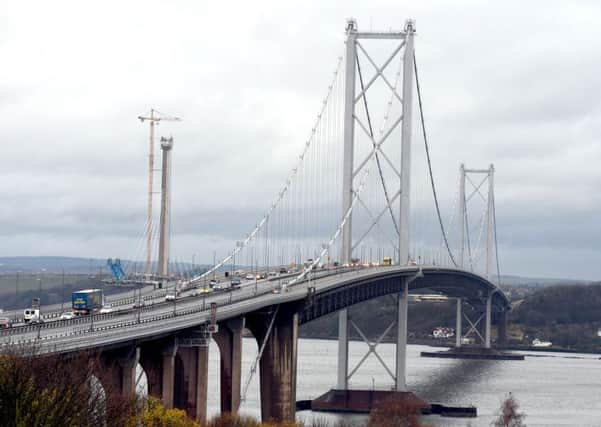Andrew Wilson: six simple steps so hard to take


Productivity is a measure of how well an economy uses its resources to create salaries and profits, which is probably the easiest way to think of Gross Domestic Product, the size of our economy. It is a fundamental determinant of international competitiveness and living standards.
Productivity is generally measured as the amount of output produced in an economy adjusted for the number of workers or hours worked producing that output. Higher productivity means you get more output for less time committed – working smarter and more effectively in other words.
Advertisement
Hide AdAdvertisement
Hide AdThis bold target is the right one and a focus on it now should be renewed on all sides of the political debate. But it is very hard to shift. Scotland and the UK rank in the 3rd quartile of the 34 countries in the OECD group of industrialised countries. They haven’t shifted much since the target was set with a gap of around 22 per cent stubbornly in place. After nine years of policy effort the dial hasn’t moved.
There are many good reasons for this, not least the financial crisis and oil price slump. The UK productivity performance gap with the other G7 countries reached record levels in 2014. Distinguishing ourselves in that context is not an easy task. The policy levers available to use are not vast or equivalent to ones at the disposal of the countries we want to catch up with. But neither are they nothing and they are growing.
Now is a good time to think very carefully about a different approach. The prize is vast; bridging the gap could boost the size of the economy by as much as £30 billion, other things being equal. In fact it could be larger, as the pull on talent such growth would create would increase the population as well in a self-perpetuating upward shift.
How to kick-start this? Policy prescription is relatively easy to identify in six simple to articulate steps.
First, infrastructure investment is hugely important. The closure of the Forth Road Bridge on safety grounds is a clear demonstration of why. Hours and days of productive work will be lost, thousands of them. The converse is true if we can move people, goods and information around more quickly. In a country with a relatively large landmass and small population on the north-west edge of Europe this is more relatively important for us by some multiple.
Investment in education and skills is the second foundation. We need to look to the best in the world and try to better them. We once did.
Innovation and commercialisation is the third aspect – easy to say and proving very hard to do. The global ultrasound market is estimated to be worth over $6 billion by 2019. A man called Ian Donald pioneered the technique as Professor of Midwifery at Glasgow University in the 1950s, after seeing it used in the Glasgow shipyards to look for flaws in metallurgy. But you have to look very hard to find Scotland’s share of such a vast global market today. We still have truly world-class universities – nurture that, don’t risk it.
Fourth, using our resources efficiently matters too. That means using less or cheaper energy for each unit of output. In our climate with our energy potential the prize is clear.
Advertisement
Hide AdAdvertisement
Hide AdThe fifth is ensuring the policy and taxation environment encourages business rather than sneering at the profit motive.
And finally is the nebulous matter of mindset. Do we leave school willing to bear risk, back ourselves and take a chance? Do we support the people who do? Do we see ourselves in a global world and are we prepared to internationalise ourselves? “There are few more impressive sights than a Scotsman on the make,” was JM Barrie’s famous view. We need more women and men on the make at home and round the world.
So what do we do with all of that? It’s almost trite of me to describe six easy steps to a seemingly intractable problem. It’s not just for government, but when it comes to leading our effort and marshalling our collective resources and taking a risk, the role of government matters immensely.
As citizens we all shout loudly about wanting everything sorted and now. We’d rather not pay more tax and we’d rather you cut money other people get but not when you specify who gets hurt. This, plus ferocious and unforgiving scrutiny of politics, politicians and their work, makes policy innovation and risk-bearing harder in our country than it needs to be.
So what then? Pick one or two things to focus on, agree them as a country and throw everything we have at them. Education will be one and digital and infrastructure improvement should be the other. Being willing to borrow significant sums at currently low prices to invest in both should underpin it. Focusing all of the efforts and talents of Scottish Enterprise on innovation and exporting alone will increase their chances of success.
We have to do radical things which means being radical by stopping doing other things. New things won’t have vested interests, the things we stop will. Let’s try. «